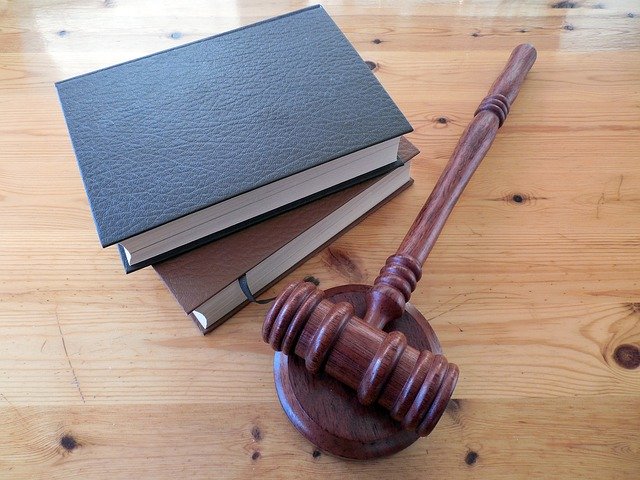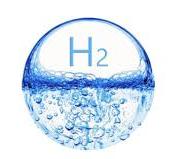
WFW on the Legal Framework for Hydrogen Production in France
The French Hydrogen Strategy
To face the challenges of ecological transition and climate emergency, the French State plans to develop low-carbon and renewable hydrogen and their industrial, energy and mobility uses. The core objective, enacted into law, is to have 20-40% of total hydrogen and industrial hydrogen consumption sourced from low-carbon and renewable hydrogen by 2030. Pursuant to the government’s Multi-Annual Energy Programme (PPE), the first objective is to reach a rate of 10% carbon-free hydrogen for industrial usage by 31 December 2023, then between 20-40% by 31 December 2028. Regarding power-to-gas installations, the objectives are 1 to 10 MW by 31 December 2023 and 10 to 100 MW by 31 December 2028. For hydrogen charging and refuelling stations, the objectives are rather limited: 100 charging stations by 31 December 2023 and 400-1,000 by 31 December 2028.
To support the development of low-carbon and renewable hydrogen, the French State will invest €7bn by 2030, with €2bn to be directly invested as part of the government recovery plan to address the economic impact of the Covid-19 pandemic. Three priorities have been set for this investment: (i) decarbonising industry (with a carbon neutral objective for 2050), (ii) developing hydrogen mobility and (iii) supporting and developing France’s research capacity.
Regarding hydrogen storage, we understand from the French electricity transmission system operator (RTE) that storage of large amounts of electricity in the form of hydrogen in order to manage renewable energy intermittency should not be required before circa 2050. Therefore, the use of hydrogen to store excess electricity is unlikely to be a short-term priority.
The efficiency of France’s low-carbon and renewable hydrogen strategy, which was published jointly on 9 September 2020 by the Minister of Ecological Transition and the Minister of Economy, will be supervised by a National Hydrogen Council (Conseil National de l’hydrogène) which was set up on 11 January 2021. For private operators, the French association for hydrogen and fuel cells (France Hydrogène, previously Afhypac), aims to play an important role in the development of the French hydrogen sector by rallying different stakeholders from across the private sector.
The future of the French hydrogen sector will depend on the ability of stakeholders to significantly increase the production of low-carbon and renewable hydrogen by electrolysis and to create a competitive hydrogen industrial cluster. To be economically viable, the production of renewable and low-carbon hydrogen needs to increase substantially, which will entail “the development of demand for renewable gases and a large amount of inexpensive electricity”¹.
The national strategy for the development of hydrogen aims to have a low-carbon and renewable hydrogen production capacity via electrolysis of 6.5 GW by 2030. However, to date, due to the market’s lack of maturity, the development of hydrogen will, at least in the short term, be highly dependent on public subsidies and/or aids. Therefore, the viability of hydrogen depends not only on technical improvements but also on a positive legal and economic environment as well as confidence of the stakeholders in the financial, technical and legal structuring of the projects.
The legal framework in France is being consolidated and new developments are expected in the coming weeks and months, including the expected publication of an important regulation by the French authorities.
Existing legal framework
Under the current framework it is possible to develop hydrogen projects, but depending on their type, they must comply with different requirements.
For hydrogen production, the most common regulations are town planning and environmental laws, which already apply to any renewable energy project. Developers will have to ensure that the development of an industrial project is permissible under local town planning and other applicable regulations. This potentially includes filing for either a building permit or a prior declaration of works, depending on the size and characteristics of the project.
In addition to building authorisations, a prior declaration or, as the case may be, an environmental authorisation, would need to be applied for by the developer. The hydrogen sector may indeed be covered by several sections of France’s Environmental Regulation (nomenclature ICPE) applicable to certain facilities which impact on the environment. Some projects may require environmental impact studies and public inquiries, which may extend the duration of the proceedings. For instance, the construction and operation of a production unit producing hydrogen in industrial quantities could be, depending on the characteristics of the project, subject to an environmental authorisation, a building permit and an examination on a case-by-case basis by the relevant public authority to determine if an environmental impact study is required. Furthermore, if the hydrogen project is located in an industrial area, this will need to be considered.
We note that there is some uncertainty regarding the application of the French transposition of the IED (Industrial Emissions Directive) to the production of low-carbon and renewable hydrogen. However, the French authorities have published an interpretation note which indicates that the IED is not automatically applicable to non-commercial projects producing hydrogen. The environmental impact of such projects should also be taken into account to determine whether the IED is applicable or not. For hydrogen refuelling points, a new legal framework was published in late 2018 and has been in force since 1 January 2019.
In addition to these regulations, which are common to any industrial project in France, the French authorities have recently published a regulation defining the conditions for the production of low-carbon and renewable hydrogen by electrolysis to benefit from a support mechanism and a traceability framework.
Expected legal framework
On the basis of Article 52 of Law no. 2019-1147 dated 8 November 2019 on Energy and Climate, the French authorities published an ordinance on hydrogen dated 17 February 2021 (the Ordinance).
One of its purposes is to introduce definitions of hydrogen into the French Energy Code. Depending on the energy used to create hydrogen (renewable or not) and a yet to be determined carbon dioxide threshold, hydrogen will be categorised as renewable, low-carbon or carbonaceous. Only renewable or low-carbon hydrogen produced by electrolysis will benefit from a support mechanism.

Support mechanism
As is already the case for most renewable energy projects in France, the Ordinance provides that the French authorities may launch a tender procedure to meet the objectives set by law, i.e. reaching 20-40% of low-carbon and renewable hydrogen out of the total hydrogen and industrial hydrogen consumption by 2030. In this respect, the Ordinance only indicates that the awarded candidates may benefit either from (i) an operating aid in the form of a contract to be determined (e.g. power purchase agreement, contract for difference) with a maximum 20-year term or (ii) a combination of an operating aid and an investment aid. France Hydrogène favours the idea of an operating aid that would take the form of a contract for difference, where a premium is granted to the producer of low-carbon and renewable hydrogen in €/kg.
The Ordinance also contains provisions already applicable to other renewable energy support mechanisms. In particular, excluding contracts already entered into, the administration may suspend (partially or totally) the support mechanism if it no longer meets the objectives of the PPE.
The next step is to draft the specifications for the call for tenders, which should be launched in 2022. These specifications will have to be carefully reviewed by future bidders, bearing in mind that, given the different technologies and possible offtakes, there is a discussion on whether one or several calls for tenders should be published according to different hydrogen applications.
To ensure the hydrogen produced is renewable or low-carbon, the Ordinance provides a guarantee of origin mechanism as well as a guarantee of traceability mechanism. While a guarantee of origin certifies the renewable or low-carbon nature of the produced hydrogen, a guarantee of traceability ensures that renewable or low-carbon hydrogen has been physically delivered to the purchaser or to the final user. Such a distinction is not common in the French market, where only the guarantee of origin mechanism applies.
From 30 June 2021, the Ordinance also provides that guarantees of renewable hydrogen origin from, or established in, other EU member states may be recognised and treated in the same way as a guarantee of origin linked to a production unit located in France, provided that a similar level of requirements are met. According to the Ordinance, a similar mechanism could be set at a later stage for guarantees of origin for low-carbon hydrogen.
A mechanism for guarantees of origin also exists for biogas injected into the gas grid network produced by anaerobic digestion. The Ordinance complements this system with new provisions and extends it, as of 1 April 2023, to renewable hydrogen injected into the natural gas grid network.
Looking at the timetable for these mechanisms, the decree containing specific provisions on the support mechanism should be published this year. In parallel, the European Commission should be notified of the support mechanism during the second half of 2021 as a result of the State aid regime.
Read Full Article .The French Hydrogen Strategy.–>
By: Laurent Battoue , Partner, WFW Paris and Antoine Bois-Minot , Senior Associate, WFW Paris
Report by: OGP/Segun Cole , Please email us your industry related news for publication info@OilAndGasPress.com
Follow us: @OilAndGasPress on Twitter | OilAndGasPress on Facebook
News on Saving Energy, Protecting the Environment
Disclaimer
Most News articles reported on OilAndGasPress are a reflection of what is published in the media. OilAndGasPress is not in a position to verify the accuracy of daily news articles. The materials provided are for informational and educational purposes only and are not intended to provide tax, legal, or investment advice. OilAndGasPress welcomes all viewpoints. Should you wish to provide a different perspective on the above article, please email us info@OilAndGasPress.com



